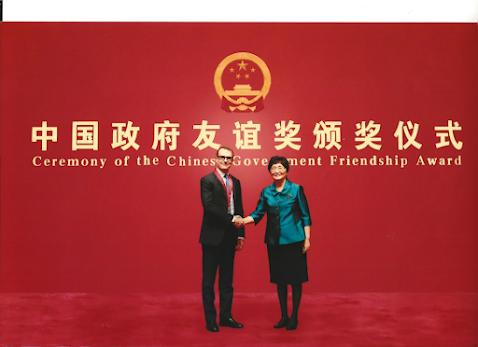CBCGDF suggested replacing "Repair" with "Restoration" | "Jiangsu Coastal Zone and Marine Spatial Planning (2021-2035)"
To actively responded to the call of the Department of Natural Resources of Jiangsu's "Jiangsu Coastal Zone and Marine Spatial Planning (2021-2035)" (Draft for Comments), China Biodiversity Conservation and Green Development Foundation (CBCGDF) put forward 7 suggestions in total for reference in its scientific decision-making.
It's found that the word "Repair" appeared 12 times in the draft of "Jiangsu Coastal Zone and Marine Spatial Planning (2021-2035)", while "Restoration" appeared only once, it's suggested that the word "Repair" be changed to "Restoration" when it comes to ecological environment. Overall, the draft is more focused on manual repair and remediation. Here's the [Recommendation 4].
Suggestion 4: The word "Repair" should be changed to "Restoration" when it comes to the ecological environment.
Reasons for Suggestion: The draft of "Jiangsu Coastal Zone and Marine Spatial Planning (2021-2035)" favors the word "Repair" in ecological aspects, which CBCGDF is strongly against for the following reasons:
Both "Repair" and "Restoration" refer to ecological processes, but they are two very different concepts. If they are used incorrectly, they may lead to a situation where we are trying to "Repair" something that is contrary to nature at the expense of spending a lot of money on it, which is not what we want. Specifically
Ecological Repair: This term usually describes man-made repairs to damaged or destroyed ecosystems, with more emphasis on human intervention.
Ecological Restoration: This term emphasizes the use of natural solutions to restore ecological health.
"Repair" emphasizes human intervention and improvement in the restoration process, while "Restoration" emphasizes natural processes and the ability of the system to self-regulation.
The reason for emphasizing "Restoration" rather than "Repair" is that it is not a large-scale human intervention, but rather a minimal human intervention to promote natural restoration. In the Chinese context, the subject of "Repair" is human beings, a kind of man-made action, and the idea and claim of "Repair" often stand on the opposite side of ecological civilization, at the cost of biodiversity destruction. Under the guidance of the concept of ecological civilization, the ecological management of both ecosystems and wildlife habitats should be based on natural restoration rather than man-made "Repair". If we can let it be restored naturally, we should not take artificial measures to repair it. Moreover, artificial repair often fails to achieve the real meaning of restoration due to certain natural factors. In general, it is recommended to choose a nature-based solution that is friendly to the environment and biodiversity: Eco-Restoration.
(Please note that this article is based on machine translation and is for reference only.)
Editor: Samantha
Contact: V10@cbcgdf.org; +8617319454776

Do you know? CBCGDF is a non-profit organization. We rely on crowd-funding and donations. You have the opportunity to help us to advance biodiversity conservation. Donate TODAY to power up the movement to make it a better world for all life.
https://www.paypal.me/CBCGDFChina
http://www.cbcgdf.org/English/ConfirmDonaTion/0.html
【BAG】
1.Webpage:
https://www.paypal.com/donate/?hosted_button_id=2EYYJJZ8CGPLE
2. via paypal
Donation(501C3)Paypal: intl@wbag.org



Comments
Post a Comment